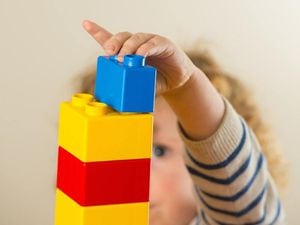It’s good to talk: Chatterbox parents may boost youngsters’ IQ
Mothers and fathers who talk a lot may unwittingly be improving the mental skills of their children, a study suggests.

Chatty parents may boost the intelligence of their offspring simply by talking, a study has shown.
Children whose ears are filled from an early age by the sound of mum and dad’s conversations tend to grow up with better mental skills, the results suggest.
Scientists eavesdropped on at-home interactions between 107 pre-school children and their parents over three days for up to 16 hours a day.
As part of the study the children, aged two to four, were “wired” with miniature sound recorders hidden in their clothing.
Parents were asked to partake in activities such as drawing, copying and matching tasks designed to test their children’s mental skills.
Lead researcher Katrina d’Apice, from the University of York’s Department of Education, said: “Using the audio recorders allowed us to study real-life interactions between young children and their families in an unobtrusive way within the home environment rather than a lab setting.
“We found that the quantity of adult spoken words that children hear is positively associated with their cognitive ability. However, further research is needed to explore the reasons behind this link.
“It could be that greater exposure to language provides more learning opportunities for children, but it could also be the case that more intelligent children evoke more words from adults in their environment.”
Youngsters who were exposed to a lot of adult chat had better reasoning, numeracy and shape awareness ability than those who were not.
The quality of adult speech also made a difference, the scientists found. Children whose parents used a wide-ranging vocabulary knew a greater variety of words themselves.
In addition, “positive parenting” that encouraged exploration and self-expression was associated with less restless, aggressive and disobedient behaviour in children.
Senior author Professor Sophie von Stumm, also from the University of York, said: “This study is the largest naturalistic observation of early life home environments to date.
“We found that the quantity of adult spoken words that children were exposed to varied greatly within families. Some kids heard twice as many words on one day as they did on the next.
“The study highlights the importance of treating early life experiences as dynamic and changeable rather than static entities.
“Approaching research in this way will help us to understand the interplay between environmental experiences and children’s differences in development.”
The findings appear in the journal Developmental Psychology.





